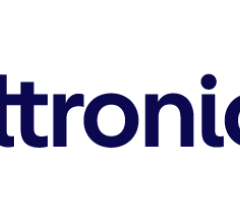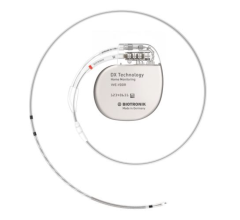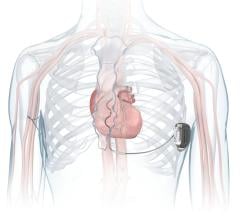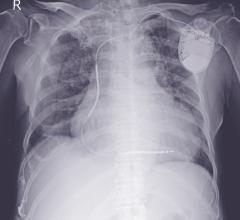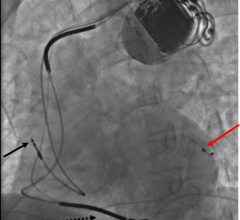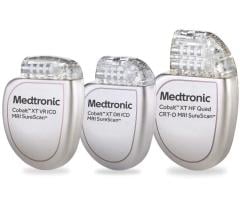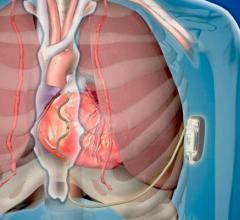July 31, 2007 - Implantable defibrillators can reduce the risk of sudden death in high-risk patients with hypertrophic cardiomyopathy, according to a new study conducted at the Hypertrophic Cardiomyopathy Center at the Minneapolis Heart Institute Foundation and published in the July 25 issue of the Journal of the American Medical Association.
The study also found that several patients with an implantable cardioverter-defibrillators (ICDs) had only one risk factor for sudden cardiac death.
"Hypertrophic cardiomyopathy is the most common cause of sudden death in young people, including athletes, and a defibrillator affords the opportunity, as it turns out, to change the natural course of the disease and prevent sudden death," said the study’s lead author, Barry Maron, M.D., director of the Hypertrophic Cardiomyopathy Center at the Minneapolis Heart Institute Foundation. "In a way, this highlights the use and effectiveness of the device in this genetic disease in these young patients and expands the number of patients that could be eligible at least for consideration of a defibrillator."
While much of this data has already been published, the study confirms the data and is also the largest of its kind. The study included data from an international, multi-center registry of defibrillators implanted between 1986 and 2003 in 506 patients with hypertrophic cardiomyopathy. All of the patients, whose average age was 42 years, were considered at high risk for sudden death, although 87 percent had no or only mild symptoms. Average follow-up was 3.7 years. The defibrillators were implanted both in primary prevention patients and secondary prevention.
In 20 percent of the patients, there was one or more incident in which the ICD terminated ventricular fibrillation or ventricular tachycardia.
The defibrillator terminated abnormal heart rhythms in 10.6 percent of patients annually who had a device for secondary prevention and in 3.6 percent of patients a year for primary prevention.
Results from the study showed that the probability of a defibrillator intervening five years after implantation was almost 25 percent.
For more information: www.jama.ama-assn.org


 January 13, 2026
January 13, 2026 

